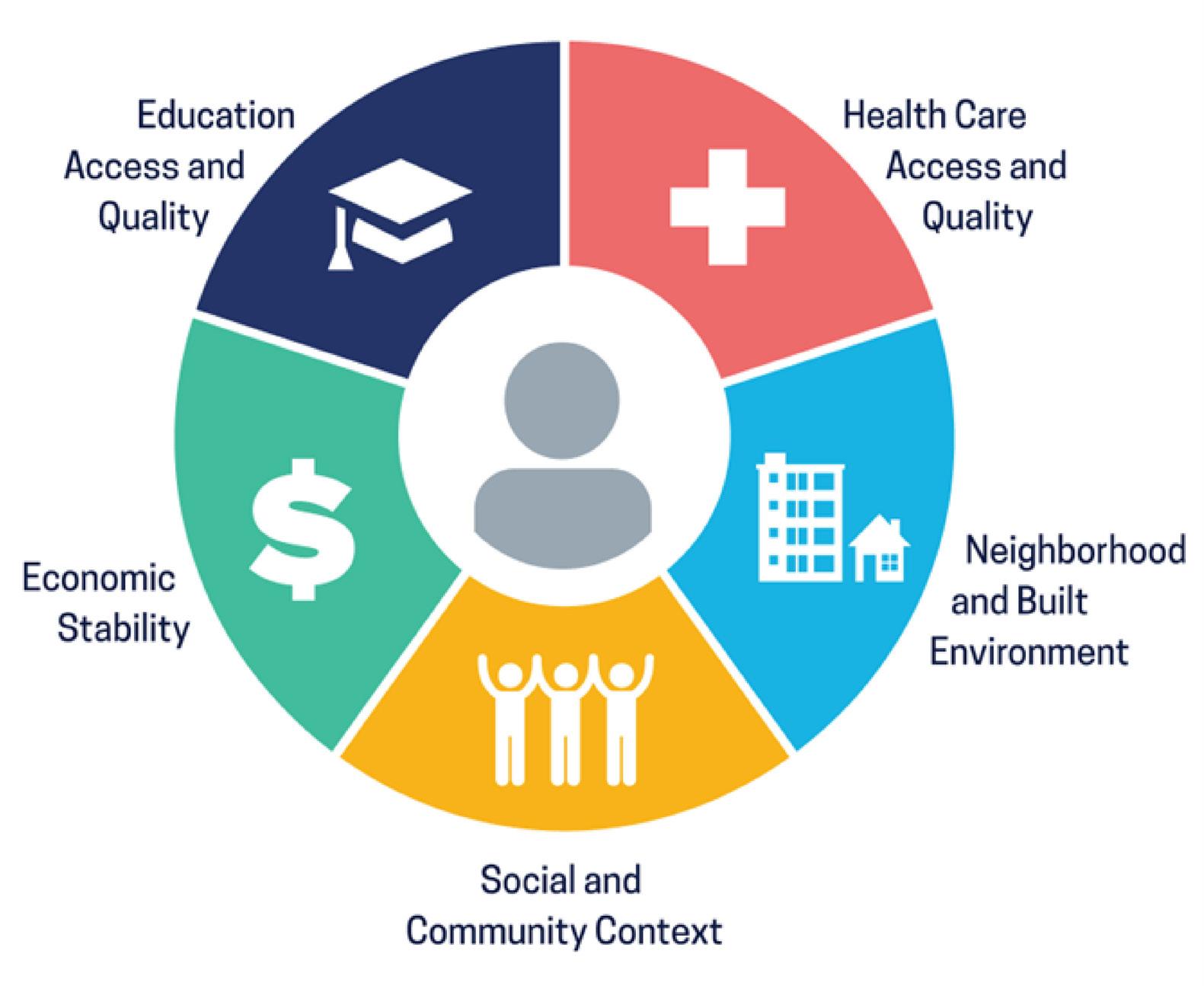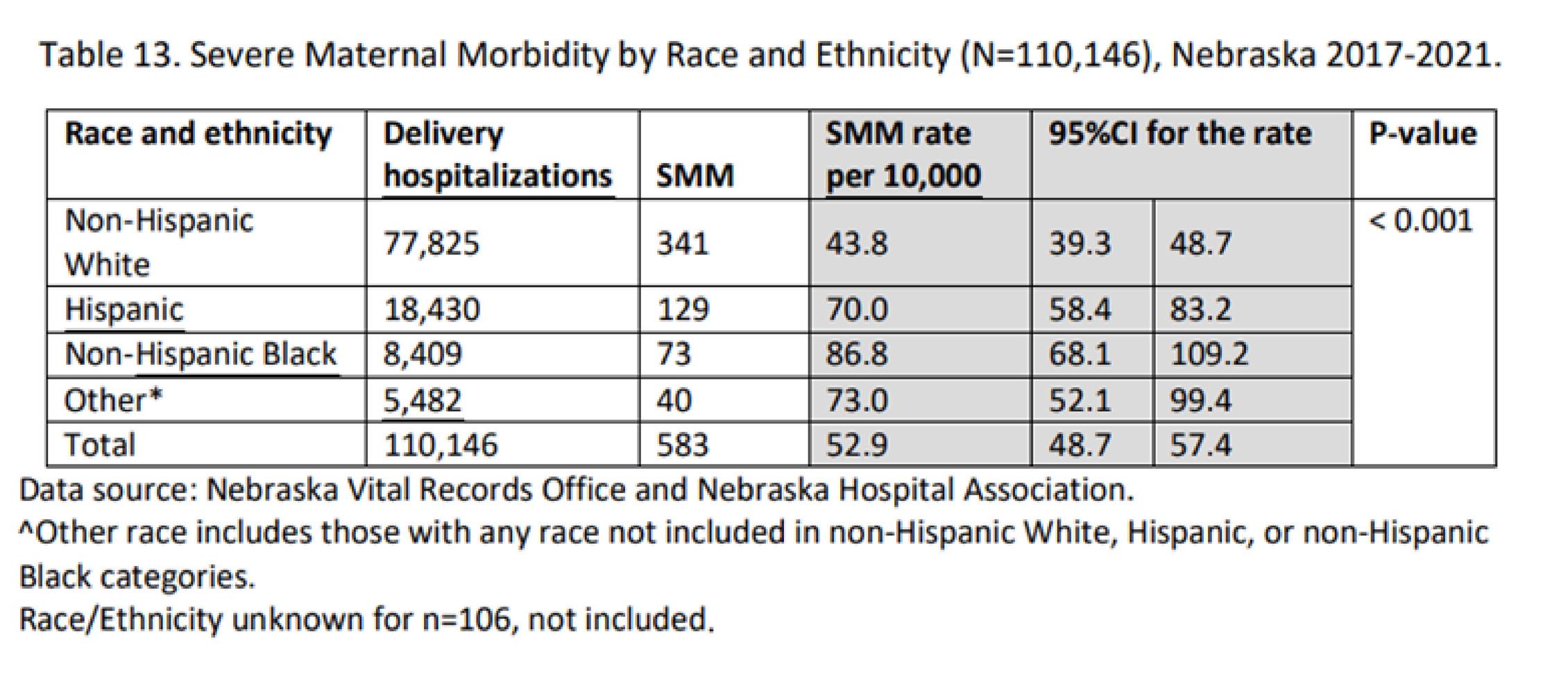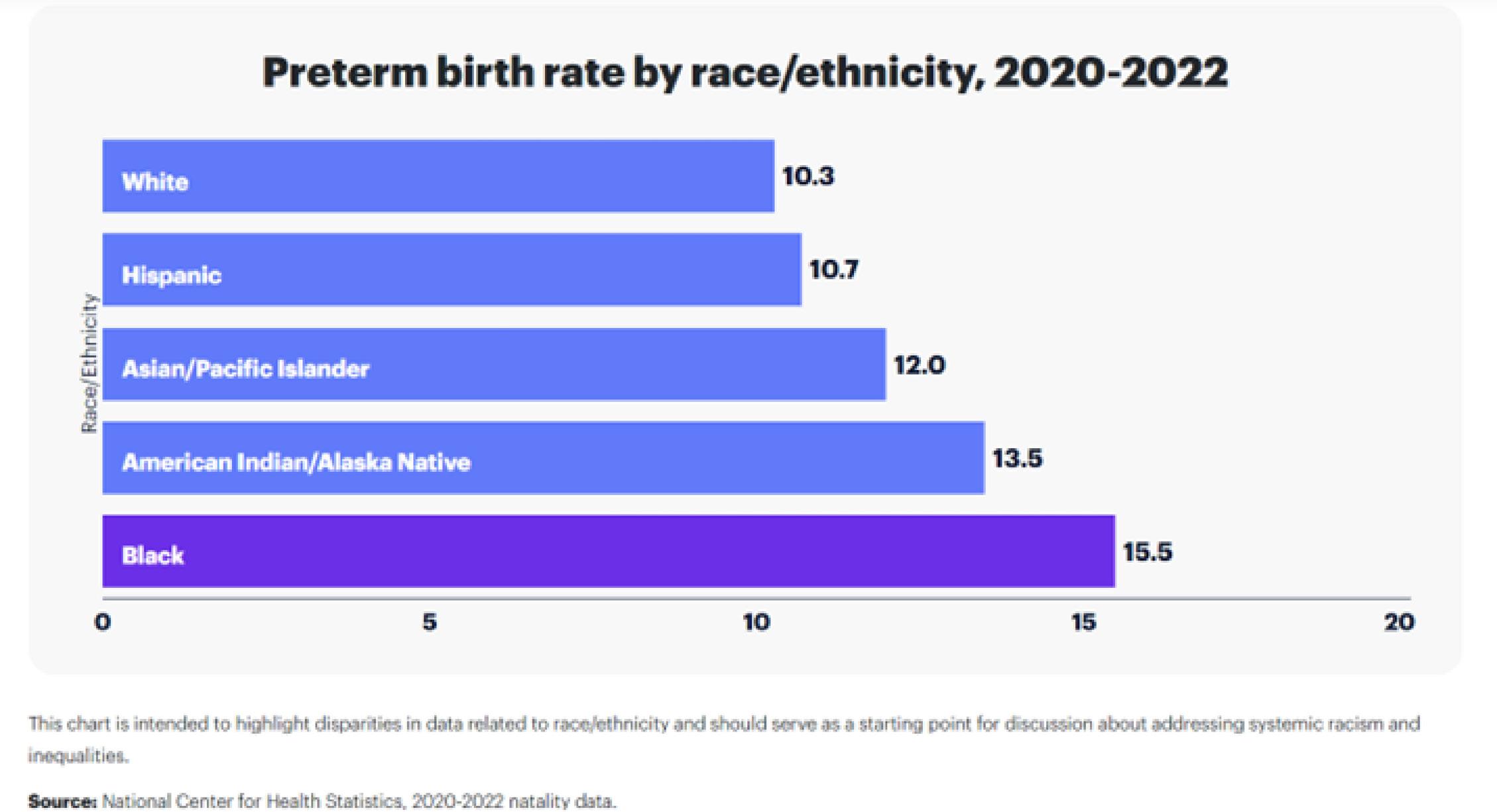
NEBRASKA STATE Maternal Health Initiative


NEBRASKA STATE Maternal Health Initiative
We know that Black mamas, parents and babies deserve to not just live through their birth experiences but thrive. The Nebraska Maternal Health Initiative (MHI) is a 5-year (2023-2028) cooperative agreement funded through Health Resources and Services Administration (HRSA) to innovate positive birth outcomes for Black mamas, babies and parents in Nebraska.
Through this investment, I Be Black Girl (IBBG) will (1) establish the Nebraska Maternal Health Task Force (MHTF), (2) improve state level maternal health data dissemination and sharing and (3) promote and execute innovate solutions in maternal health service delivery that center the leadership and experience of Black people with the capacity for pregnancy.
IBBG is the first and only community-based organization to receive this Maternal Health Innovation (MHI) award since the program’s inception. This demonstrates the thought leadership and impact IBBG has had in the 7 years since inception in health equity and system change.
The MHI award has high potential for impact as it can expand the work IBBG while creating more just maternal and child health systems. IBBG has long been involved in championing key statewide policies such as expansion of postpartum Medicaid coverage from 60 days to up to one year. While doula services are not yet covered by Medicaid, the effort to navigate a successful strategy for the upcoming legislative session is crucial, and is in part due to IBBG’s leadership. IBBG also has been at the forefront of ensuring that partner recruitment for the Nebraska Maternal Mortality Review Committee was representative and accessible.
We know that Black women, Black birthing people and Black babies are experiencing poor health outcomes at a disproportionate higher rate than other racial, ethnic and cultural groups.
• Black babies have higher preterm birth rates
• 12% of Black babies in Douglas County, Nebraska are dying within their first year of life
• Black mamas are 2-3X more likely to die during and after childbirth
• Black birthing people have higher near death and traumatic birth experiences
This does not have to be the reality for Nebraska Black women and people with the capacity for pregnancy. When you focus on those most impacted, all women and birthing people will benefit.
I Be Black Girl (IBBG) serves as a collective for Black women, femmes, and girls to actualize their full potential to authentically be, through autonomy, abundance, and liberation. The term “I Be,” framed by author bell hooks in Be Boy Buzz, inspired IBBG’s founder to fill spaces with what it means to exist as a Black woman, femme, or girl - where Black women, femmes and girls are free to define and own that narrative.
We envision a world where Black women, femmes, and girls live wholly and as the only reproductive justice organization in Nebraska, IBBG leads with boldness, innovation, and inspiration, actively creating a radical change-making culture that centers the 40,000+ Black women, femmes, and girls across the state.
IBBG serves as an intermediary or backbone organization working to create systems change through conducting data and research, community power building and convenings, redistributing resources, and policy and advocacy efforts.
• Advocacy & Power Building
Policy is a driver for change and has historically been weaponized against Black communities. As a result, we are committed to building Black political power to address the harm and chart a new experience with legislation that centers Black women, femmes, and girls.
• Black Led Investments
Black women and femmes are at the helm of every social movement in our history yet receive the lowest number of resources needed to do this integral work. We catalyze participatory grantmaking spaces to enable reinvestment back into Black led and centered organizations.
• Birth Justice
Using a Collective Action Framework to create a movement to disrupt the systems that perpetuate incidences of maternal morbidity, mortality, and traumatic care experiences using strategies that center the experiences and leadership of Black women and birthing people.
• Economic Justice
America has spent decades depriving Black people access and opportunity to economic security, and abundance and dignity; leading to a scarcity mindset rooted in injustice. Economic opportunity is key to living the life you dream and deserve.
Black women, femmes and girls are uniquely impacted by every system of oppression, and as such, Black women, femmes and girls are uniquely positioned to create real, transformational solutions to the problems which plague our communities.
I Be Black Girl uses key frameworks of practice to actualize change as an intermediary organization.
Reproductive Justice is a framework that addresses the systemic oppressions that prohibit all people from accessing reproductive health and wellbeing as they decide, how they decide, and when they decide. Unlike reproductive rights, Reproductive Justice goes beyond contraception, abortion access and the “my body, my choice” campaigns throughout the U.S.
The framework demands consideration of all the ways reproductive health can be affected by other factors, such as race, religion or sexual orientation to financial, immigration or disability status to environmental conditions.
Reproductive justice links reproductive rights with the social, political and economic opportunities at both a system and individual level, that affect one’s ability to live wholly (Adapted from Black Women’s Health Imperative).
GUIDING PRINCIPLES
• Dismantle power systems
• Address intersecting systems of oppression
• Center and uplift those most impacted
• Build power and choice in community VALUES
• Equitable Access and Opportunity
• Build Knowledge and Awareness
• Radical Reimagination

Collective Action is an approach to systems change that brings together grantmakers, nonprofit service providers, public and government agencies, people with lived experience and the business community in the pursuit of a common purpose for improving people’s lives.
Collective action achieves this by aligning philanthropic resources, direct social services, public institutions, policy, and community efforts to solve complex social issues linked to social determinants of health (Adapted from Root Cause).
Social Drivers/Determinants of Health (SDoH) is defined as conditions in the environments where people are born, live, learn, work, play, worship, and age that affect a wide range of health, functioning, and quality of life outcomes and risks.
The way communities and individuals experience health and health care is not just based on access to medical services. It is also impacted by other factors that may support or create barriers to health and well-being. At a community level, these factors are referred to as “social drivers of health” (SDOH) and may also be referred to as “social determinants of health.” Examples of SDOH include economic stability, access to quality education and health care, and the neighborhood and built environment.
The specific factors that impact individuals directly are called “health-related social needs” (HRSN). Examples of HRSN include lack of stable or affordable housing and utilities, financial strain, lack of access to healthy food, personal safety, and lack of access to transportation. SDOH and HRSN can coincide and overlap, for instance, in the case of a household with income below the federal poverty line (an individual-level HRSN) in an area with poor economic conditions (a community-level SDOH). Health providers can take steps to address HRSN by understanding the needs of their patients and referring them to community-based services. SDOH and HRSN are what commonly lead to health disparities—that is, different health outcomes in different groups of people.

Nebraska, like most geographies across the US, is seeing a Black Maternal and Child Health Crisis.
NEBRASKA SNAPSHOT
• 5.3% of the population is Black or African American
• 50.3% of the population are women.
• The largest county in Nebraska is Douglas County, where 11.4% of the population is Black, with half being Black women, femmes, and girls.
• Nebraska is home to large urban areas as well as rural farming communities. The state serves as a resettlement location for refugees, has six Indigenous tribes with reservations, and is home to migrant and seasonal workers.

NEBRASKA SOCIAL DRIVERS OF HEALTH SNAPSHOT
For Black women living in Nebraska, the outcomes are disproportionally worse. These factors and more contribute to poor maternal and child health outcomes for Black pregnant people, as we know that things like access to health insurance, income, food, and housing all impact a pregnant person’s wellbeing.
Key indicators measuring maternal and child health reveal a clear picture of where things are in Nebraska.
• In 2020, there were 24,291 live births across the state.
• Nebraska ranks 19th in maternal mortality (death) rates across the U.S.
• Nebraska has received a grade of D- from the March of Dimes with a preterm birth rate of 10.8. Black women are 50% more likely to deliver a preterm baby than all other women in the state.
These statistics demonstrate a significant disparity, with Black women experiencing the burden of adverse birth outcomes.
• Nebraska ranks second-highest in the US for maternity care deserts.
• Rural regions of the state accounted for roughly 40% of births from 2016-2018, yet 66 of the state’s 93 counties have no hospitals providing obstetric care, no birth centers, no OB/GYNs, and no certified nurse midwives.
• Most Nebraskans use Medicaid to cover their maternal care.
• There is a lack of diversity in health care providers with less than 2% of the state’s physicians being Black or African American.
From the 2023 Maternal Mortality Review Committee (MMRC) report:
KEY FINDINGS:
• 93% of pregnancy-related deaths were deemed preventable.
• Maternal deaths rose from 754 in 2019 to 1,205 in 2021 (i.e. pregnancy-related and pregnancy-associated deaths combined).
• In 2021, the mortality ratio for non-Hispanic Black women was 22 per 100,000 live births compared to 11.8 per 100,000 live births among non-Hispanic White women.
• Lack of continuity of care was the most frequent factor identified as contributing to pregnancy related deaths; followed by lack of access or financial resources and clinical skill or quality of care. “Lack of knowledge, delay in referral or access to care, and inadequate assessment of risk also contributed to the deaths”.
The MMRC developed seven priority recommendation areas and related strategies to reduce preventable maternal mortality, including:
1 Closed loop social support
2 Non-discriminatory practices
3 Behavioral health access
4 Healthcare best practice adoption
5 Domestic violence safety plan development
6 Care continuity
7 Medical care access
From the 2024 Nebraska Severe Maternal Morbidity report:
KEY FINDINGS
• From 2017-2021, the total number of delivery hospitalizations with at least one SMM event was 657, corresponding to an SMM rate of 58.5 events per 10,000 delivery hospitalizations.
• There has been a steady rise in SMM in Nebraska from 52.2 per 10,000 deliveries in 2017 to 60.9 per 10,000 deliveries in 2021.
• The SMM rate was statistically significantly greater in women with Medicaid than women with private insurance.
• Non-Hispanic Black women (86.8 per 10,000 hospitalizations) experienced significantly higher SMM events compared to non-Hispanic White women (43.8 per 10,000 Hs).
Disproportionate Impact: While non-Hispanic Black women represented 7.6% of the delivery hospitalizations during the reporting period, 12.5% of the SMM occurred among this population.

Title V legislation requires the state to prepare and transmit a statewide Needs Assessment every five years that identifies (consistent with the health status goals and national health objectives). The 2020 Title V Needs Assessment report determined the following priorities (in alphabetical order):
• Access to Preventative Oral Health Services
• Access to and Utilization of Mental and Behavioral Health Care across the Lifespan
• Behavioral Health in School for Children and Youth with Special Health Care Needs
• Cardiovascular Disease among Women aged 18 through 44 years
• Child Abuse and Neglect
• Infant Safe Sleep
• Motor Vehicle Crashes among Youth aged 10 through 19 years
• Premature Birth
• Sexually Transmitted Disease Prevention Suicide Prevention
Through intentional dialogue and listening sessions led by UBUNTU Research and Evaluation, I Be Black Girl explored Black women’s reproductive care journeys, stories, and experiences with special attention to their birthing and labor histories.
The findings were compiled and analyzed with the purpose of engaging the larger Nebraska community, healthcare systems, policy partners, and community-based birth workers to unveil the reproductive healthcare needs of Black women.
The Ain’t I A Woman: A Person-Centered Approach to Reproductive Care for Black Women report released the following recommendations, broken down by the following themes: shared decision making, trust building, communication and birthing practices.
THIS INCLUDES:
• Developing training protocols to improve provider-patient interactions and communication;
• Enhancing healthcare system capacities to increase their reach, by having shorter wait times and locating services in less populated areas of the state;
• Building in the opportunity for patient experiences to be tailored to the needs of individuals;
• Increasing provider empathy in patient experiences;
• Providing more incentives for providers of color to help increase their prevalence in the state;
• Increasing patient autonomy in reproductive health care situations, such as: birthing plans, access to doulas and midwives, tailored delivery options such as water births or birthing centers;

• Offering resources such as classes for single mothers and for extended family members, transportation to and from pregnancy and newborn monitoring visits, providing targeted resources to prep for and during the postpartum period and increasing efforts to publicize and link mothers to community programs, such as Essential Pregnancy Services, that highlight housing, education and childcare opportunities.
The 2023 March of Dimes Report Card highlights key indicators to describe the current state of maternal and infant health as it relates to preterm birth:
• The preterm birth rate in Nebraska was 11.3% in 2022, higher than the rate in 2021
• The preterm birth rate among babies born to Black birthing people is 1.5x higher than the rate among all other babies


While there are some initiatives aimed at creating positive birth outcomes for Black mamas, parents and babies, these efforts are siloed and not comprehensive.
This evidence-based PCHI® model helps communities work together to support their populations most at-risk for poor health outcomes, and is an organized, outcome focused, network of Care Coordination Agencies (CCAs) who hire and train community health workers (CHWs) and connect individuals to needed medical, social, and behavioral services. CHWs are from the communities they serve and created trusting relationships to bridge the community members and the resources they need, and deserve, to be healthy and thrive. The HUB entity, provides backbone support to align the network of partners, support community based organizations to excel in connecting and serving the community and ensures datadriven high-quality community based services. Through collaboration across sectors and alignment of community resources, the model improves health outcomes, reduces disparities, and ensures a financially sustainable model of care coordination. CHWs, employed by local CCAs, work in the community to connect with individuals experiencing significant challenges accessing needed social, behavioral, and medical resources. The CHW uses a framework of 21 evidence-based “pathways” which are risk factors that are identified with a participant and then resolved through hands-on navigation. Outcomes have standard definitions across all CHWs, such as stable housing for 30 days or completion of vaccinations. The CCAs are paid by closing a “pathway” (a.k.a risk factor) and achieving a defined outcome.
The HUB provides centralized processes, systems, and resources to allow accountable tracking of those being served, measurement and evaluation of impact, and a method to tie payments to outcomes. This cross-sector innovative model bridges the resources and expertise of community organizations, healthcare providers, and insurance payers to reach their goals and drive positive outcomes for individuals in the community.
The goal of this strategy is to use a Collective Action Framework to create a movement to disrupt the systems that perpetuate incidences of maternal morbidity, mortality, and traumatic care experiences using strategies that center the experiences and leadership of Black women and birthing people.
Ndu Doula Access Fund: Aims to create a positive birthing experience and alleviate financial burdens from Black pregnant people and their families, ensuring that all Black pregnant people have access to the support, love, and trust of a Doula through their birth journeys.
Doula Passage Program: Builds a network of community-based Black Doulas that are equipped to serve Black women and people with capacity for pregnancy through their birth journey.
Nebraska Black Maternal Health Coalition: A group of institutional partners (medical institutions, community organizations, and birth workers) that work together to create a shared vision for the state of Black maternal health in Nebraska.
Black Maternal Health Month Conference & Reproductive Justice Summit: These convenings bring Black birth workers and allied community members and partners together to strategize how we can create systems change which centers the experiences and needs of Black women and people with the capacity for pregnancy.
Black Birthing Resource Center: The Anarcha Center houses the full spectrum of birth workers and partners so that Black pregnant folks have more accessibility, choice, and autonomy in their birthing journey in one community-based location. The center works with partners to house traditional medical practitioners who will support their clients’ comprehensive needs, including lactation consultants, and mental health practitioners. The Anarcha Center offers drop in workspaces for birth workers, meeting and appointment space, and a multipurpose space for prenatal yoga and massages, community meetings, and trainings.
Provider Finder: A free web-based application that allows Black community to search and view providers who are reviewed explicitly for caring for Black patients. This app allows the community to make informed care decisions and connects patients with competent providers.
Doula Pilots: I Be Black Girl project manages two Doula pilot programs through Medicaid Managed Care Organizations to help build the blueprint for investment in Black birth workers as key members of the care team.
There are a number of organizations working to address Maternal and Child health outcomes across the spectrum in Nebraska. However, these efforts are siloed, missing key data indicators and do not center the solutions and leadership of those impacted.
The Nebraska Maternal Health Initiative sets out to address the key barriers to success that do not allow Black mamas, parents and babies to thrive.
The 2023-2028 State Maternal Health Initiative aims to create innovative solutions to improve maternal and child health outcomes in Nebraska.
Barriers the Initiative seeks to overcome.
The overarching barriers in Nebraska this project seeks to overcome include the following:
Nebraska has significantly high rates of overall maternal mortality (28.2 compared to the national 20.4), ranks second-highest in the US for maternity care deserts, and the state has lost six birthing units in rural hospitals since 2017.
Additionally, Nebraska lacks access to culturally relevant care providers and diversity of maternal healthcare providers, including OB/GYNs, doulas, lactation consultants, midwives, and other specialized maternal care providers.
Through this project, the establishment of the Maternal Health Task Force will support breaking down silos within this ecosystem, allowing aligned agencies to build relationships for strong continuity of care and impact. The Task Force will facilitate the development of innovative strategies over the course of the initiative.
A growth opportunity for Nebraska in regard to maternal outcomes includes creating consistency of data collection, and disaggregation of data by race. This type of data analysis is vital to identifying the best approach to decrease instances of maternal mortality and morbidity.
I Be Black Girl is serving as the collective impact agency, or backbone organization, to support this Initiative through the three key approaches:
1. Establish the Nebraska Maternal Health Task Force (completed)
2. Support Data Collection & Surveillance (in progress)
3. Innovation in Service Delivery (in progress)
As of September 2024, progress has been made with the first key approach. The second and third key approach are being addressed through the key partners and community members on the task force.
Launched in January 2024, this taskforce is a collaborative of diverse partners representing various expertise, disciplines and perspectives, which influence the contexts that drive maternal health experiences and outcomes.
To radically transform maternal health through systemic level change that will support Black people with the capacity for pregnancy. By centering the needs of Black birthing people who have historically been pushed to the margins, this task forces aims to create a Maternal and Child Health ecosystem that will transform systems for the health and well-being of all.
The intentionality of this approach is reflected in the emphasis on ensuring that the majority of taskforce partners are Black community members with lived maternal health experiences and outcomes; including families and support persons impacted by adverse maternal health outcomes such as maternal mortality and severe maternal morbidity, and birthing people belonging to groups that have been historically marginalized and underserved.
1. To develop innovative strategies centered in equity and anti-racism, to implement those strategies, and to effectively evaluate their impact, thereby ensuring that our innovations are not only ideal for our communities but can be adapted to communities beyond Nebraska.
2. To improve state-level maternal health data collection, surveillance, and access, by supporting the state’s data infrastructure and developing innovative ways of giving voice to the Black maternal health experience.
3. To promote and execute innovation in maternal health service delivery through the strengthening of our Doula Passage Program, thereby building a network of culturally competent birth workers to support our Black birthing people through their pregnancy-related journeys.
• Commit to being teachable through self-reflection, vulnerability, and learning inside and outside the taskforce
• Be transparent and courageous when leaning into conflict and engaging in difficult conversations
• Give grace and ask open-ended questions to understand one another

• Network with other task force members by sharing resources and opportunities
• Recognize how personal lived experiences or trauma shape our professional experiences
• Understand that equity work is a journey and not always comfortable
• Hold each other accountable to MHI goals outside the task force to carry the work in our respective fields
• Provide psychological support through laughter, breaks, being present, and asking for help
As a collective of maternal programs and cross-sector advocates for equity and justice located throughout Nebraska, we are here to transform the Black maternal experience. We strive to improve service outcomes and ensure equitable access to culturally competent care, interventions, and resources that will create a blueprint for impact across the country. By fostering community partnerships, our alliance is united to tear down the current oppressive systems and rebuild a new standard that will stand in solidarity with our community and honor the human dignity of Black women across the state.
This is a baseline shared practical vision which was used as a foundation for the development of our strategic plan. Taskforce partners were invited to share their vision for maternal health in Nebraska (vision not limited by current barriers). Folks shared various elements, and this was followed by the group categorizing them as follows:
• Availability of real-time, transparent data.
• Sustainable funding and payment sources.
• Trained, competent, and culturally responsive maternal health workforce.
• Broad, committed, cross-sector partners.
• An accountability framework for dismantling systemic barriers.
• Access and connection to better birth services.
• Supporting birthing choice through policy.
• Listen to, trust, and respond with dignity to Black women.
• Nebraska is a gold standard for Black maternal health experiences and outcomes.
• A Meaningful Delivery
• A Mother’s Love
• Baby & Me
• Carole’s House of Hope
• Charles Drew Health Center
• CHI Health
• CityMatch
• Community members with lived maternal health experience
• Creighton Institute for Population Health
• Douglas County Health Department
• First Five Nebraska
• Help Me Grow
• Lancaster County Health Department
• Malone Maternal Wellness
• Milkworks
• Molina Healthcare
• Nebraska Children & Families Foundation
• Nebraska Children’s Home Society
• NE Department of Health and Human Services
• Nebraska Early Childhood Collaborative
• Nebraska Perinatal Quality Improvement Collaborative
• Nebraska Methodist Health System
• Omaha Better Birth Project
• Omaha Center for Refugee & Immigrant Services
• Omaha Pathways Community Hub
• SHERO-Omaha
• United Healthcare
Members of these action-oriented groups leverage their knowledge, expertise, talents, and lived experiences to support the taskforce in addressing critical gaps in the etiology of poor maternal health experiences and outcomes.
The Black Maternal Health Coalition: An existing initiative of I Be Black Girl, this collaborative of majority Black women who hold formal or informal roles in the maternal health and birth justice field, intent on reimagining the face of Black maternal health in Nebraska, is now a committee under our state MHI taskforce.
• Black Lived-Experience Committees
♦ Fathers and Supporting Partners
♦ Justice Impacted birthing community members
♦ LGBTQ+ Birthing People
♦ Transgender-centered advisory committee
• Data and Evaluation Committee
• Doula Ecosystem Committee
The MHI Task Force developed initial strategies and activities to create positive Black maternal and birth outcomes.
The next step is working with the subcommittees to get their feedback, ideas and solutions to create a comprehensive approach.
What will this project address?
1 Dismantle Institutional Racism as a Public Health Crisis
2 Workforce Development
Current Suggested Strategies Rooted in SDoH

3 Create Innovations Rooted in Social Drivers of Health (SDoH)
Social
1. Increase culture-based support programs to deal with specific challenges that folks faced due to their cultural differences (ex. Gender roles impacting how a mom shows up for herself and how a man supports)
2. Create more support groups for nontraditional partnerships including grandparents, aunts, uncles, etc. who are raising children
3. Create a Dad Doula program to support the dads in their understanding of how to support their partners during this process
What would this feel like? Well-informed, community-centered.
SDOH DOMAIN
Education Access & Quality
1. Increase reproductive health education opportunities past the school-age years and continue into adulthood
2. Increase reproductive health education opportunities to understand what resources they see online are trusted resources and what are not
3. Create a roadmap to understand how insurance works, the steps, and when to attain the proper reproductive health resources
4. Increase number of community health workers in each neighborhood, on each block
What would this feel like? Individuals will feel confident, empowered, and supported to make the right decisions about their body.
SDOH DOMAIN
Economic Stability
1. Financial support and resources for the partner post-partum as well as the birthing person
2. Family leave specialist or researcher for all families to help support moms in finding the right daycare and employment/workforce resources post-partum
3. Free program for birthing persons to have someone to check the home for environmental hazards before the baby arrives
What would this feel like? Families would feel peaceful.
1. Healthy grocery stores within walking distance so families don’t have to worry about transportation
2. Birthing centers in each neighborhood as opposed to just the presence of hospitals
3. Create a WIC-approved only grocery stores in every neighborhood to replace corner stores and liquor stores
4. Emergency resources and infrastructure to provide resources and guidance on how to prepare families for inclement weather; response planning and emergency preparedness
What would this feel like? Worry-free, connected, less stressful.
We acknowledge that the Nebraska Maternal Health Strategic Plan has many areas for action and could potentially include other strategies not explicitly mentioned here (e.g., support for trauma informed care, screening for the social determinants of health, increasing the use of nurse-midwives in the maternity care delivery system, etc.). We also acknowledge that not all of the strategies included here are likely to be addressed simultaneously and that given various policy windows and opportunities, some action steps and strategies may be elevated over others at any point in time.
Finally, we explicitly name that this Strategic Plan is a living document that will change as issues are successfully addressed, as the community continues to provide feedback and input, as new issues emerge, and as the evidence for systems, policy, and clinical interventions brings new information and accountability opportunities to eliminate maternal health inequities in Nebraska and across the nation
Why we use the term Black people with the capacity for pregnancy
We know that not all women have the capacity for pregnancy (example: a body cannot hold and grow a fetus) and that not all women give birth. It is important and necessary to use language that allows for the full spectrum of birth experiences.
The Nebraska Maternal Mortality Review Committee (MMRC) conducts comprehensive, multidisciplinary reviews of pregnancy associated deaths among Nebraska residents using national technical guidance from the Centers for Disease Control and Prevention (CDC) and CDC’s Maternal Mortality Review Information Application (MMRIA).
Severe maternal morbidity (SMM) includes unexpected outcomes of labor and delivery that can result in significant short- or long-term health consequences. SMM has been steadily increasing in recent years.
Maternal mortality is the death of a woman during pregnancy or within one year after the end of a pregnancy. Maternal mortality is an indicator used to assess the overall health of a country, state, or community.
The conditions in the environments where people are born, live, learn, work, play, worship, and age that affect a wide range of health, functioning, and quality-of-life outcomes and risks. SDOH refers to community-level factors. They are sometimes called “social determinants of health.” (Adapted from CDC Healthy People 2030)
Social and economic needs that individuals experience that affect their ability to maintain their health and well-being. They put individuals at risk for worse health outcomes and increased health care use. HRSN refers to individual-level factors such as financial instability, lack of access to healthy food, lack of access to affordable and stable housing and utilities, lack of access to health care, and lack of access to transportation. (Adapted from HHS)
Preventable differences in the burden of disease, injury, violence, or opportunities to achieve optimal health, health quality, or health outcomes experienced by disadvantaged populations. (Adapted from CDC)
The attainment of the highest level of health achievable for all people, where everyone has a fair and just opportunity to attain their optimal health regardless of race, ethnicity, disability, sexual orientation, gender identity, socioeconomic status, geography, preferred language, or other factors that affect access to care and health outcomes. (CMS)
https://www.cms.gov/priorities/innovation/key-concepts/social-drivers-health-and-healthrelated-social-needs
https://dhhs.ne.gov/MCH%20Epidemiology/Maternal%20Death%20Review%20Team%20 Annual%20Report%202023-12.pdf
https://dhhs.ne.gov/Pages/Title-V-Needs-Assessment.aspx
https://issuu.com/ibeblackgirl/docs/aint-i-a-woman